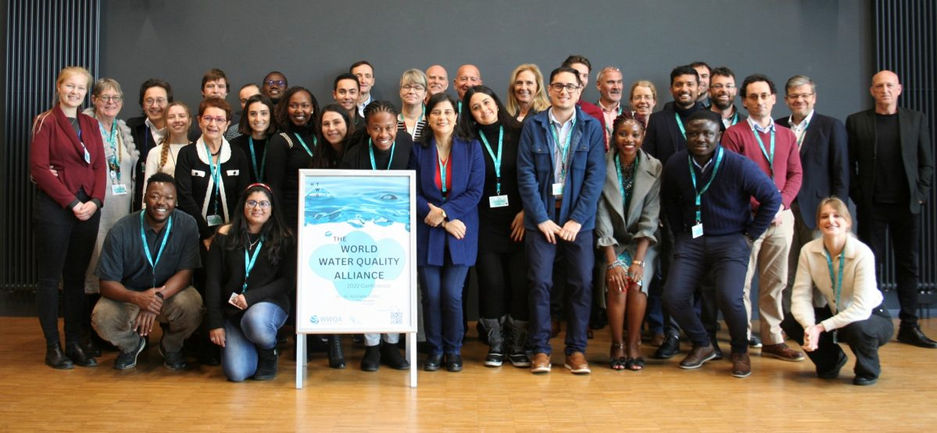


How can more people and more countries benefit from satellite-based Earth observation of water?
Join us to shape a future in which all can benefit from Earth observation of water.
When? 28th to 30th August 2024
Where? University of Stirling, Scotland
Funding available for eligible participants
About the event
Satellite-based Earth observation has emerged as a powerful global tool for monitoring surface water quantity and quality. Global satellite providers currently offer vast amounts of data open-access with unprecedented spatial and temporal coverage. Coupled with in situ data and modelling, Earth observation based monitoring is expected to boost national monitoring activities such as those tracking progress under Sustainable Development Goal 6 'Access to clean water for all', as well as stimulate economic benefits for regions where downstream industries grow by harnessing these freely available data. However, critical questions remain regarding who is currently benefiting from satellite data for water monitoring and whether it is effectively reaching countries with the greatest water issues and the biggest lack of water data. Whilst the global capability is now well advanced, individual countries need to grow capacity to ensure their own autonomy in benefiting from Earth observation to meet their own specific needs and agendas, whilst also supporting global initiatives and reporting against SDG indicators.
Join us to shape a future in which all can benefit from Earth observation of water. This workshop will address this critical issue by collectively exploring the challenges and opportunities to deliver a series of strategies that are specific to different global economic groups (low, lower-middle, upper-middle and high income countries) and the unique context of each group. Outputs, including a white paper and a series of policy briefs, will be authored by the participants and published through key international platforms. We will build a community to drive forward actions arising from the workshop, with key intergovernmental groups and other partners, to help harness the use of satellite-based Earth observation data for better water management and reliable up-to-date monitoring of water-related issues.
Host and Partners
The event will be hosted by the University of Stirling's Earth and Planetary observation research group at the University of Stirling, led by Prof. Andrew Tyler. The event is organised in collaboration with UNEP's World Water Quality Alliance, GEO AquaWatch, and the World Meteorological Organization.


Visiting Scotland
The University of Stirling campus is set a beautiful place to visit. The University of Stirling is set against the famous Ochil Hills and is nearby to Edinburgh, Glasgow and travelling up to the Highlands. Accommodation is available on the campus and can be booked via this website.
More information on the location, getting here and visas is available here.
Questions: harriet.wilson@stir.ac.uk

